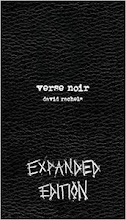
Mississippi Burning crossed with a detective novel crossed with a revenge novel crossed with stupidity. North meets South done with a nuance that makes My Cousin Vinny look like Proust. Dumbest of the dumb (spoiler follows!): Our New York private investigator has been hired to infiltrate Mississippi, to get proof that five rednecks have murdered three civil rights workers, and then to execute the rednecks. Our genius p.i. floats on top of an inflatable mattress beneath the swamp-side clubhouse of the rednecks. He has a tape recorder with him. Upon his arrival beneath the clubhouse, the rednecks immediately and spontaneously and unambiguously announce their guilt. They practically get down on their hands and knees and shout their confessions through the chinks in the floor. And then, if that isn't dumb enough, in the novel's final chapter. . . . Sheesh. Grade: D-












